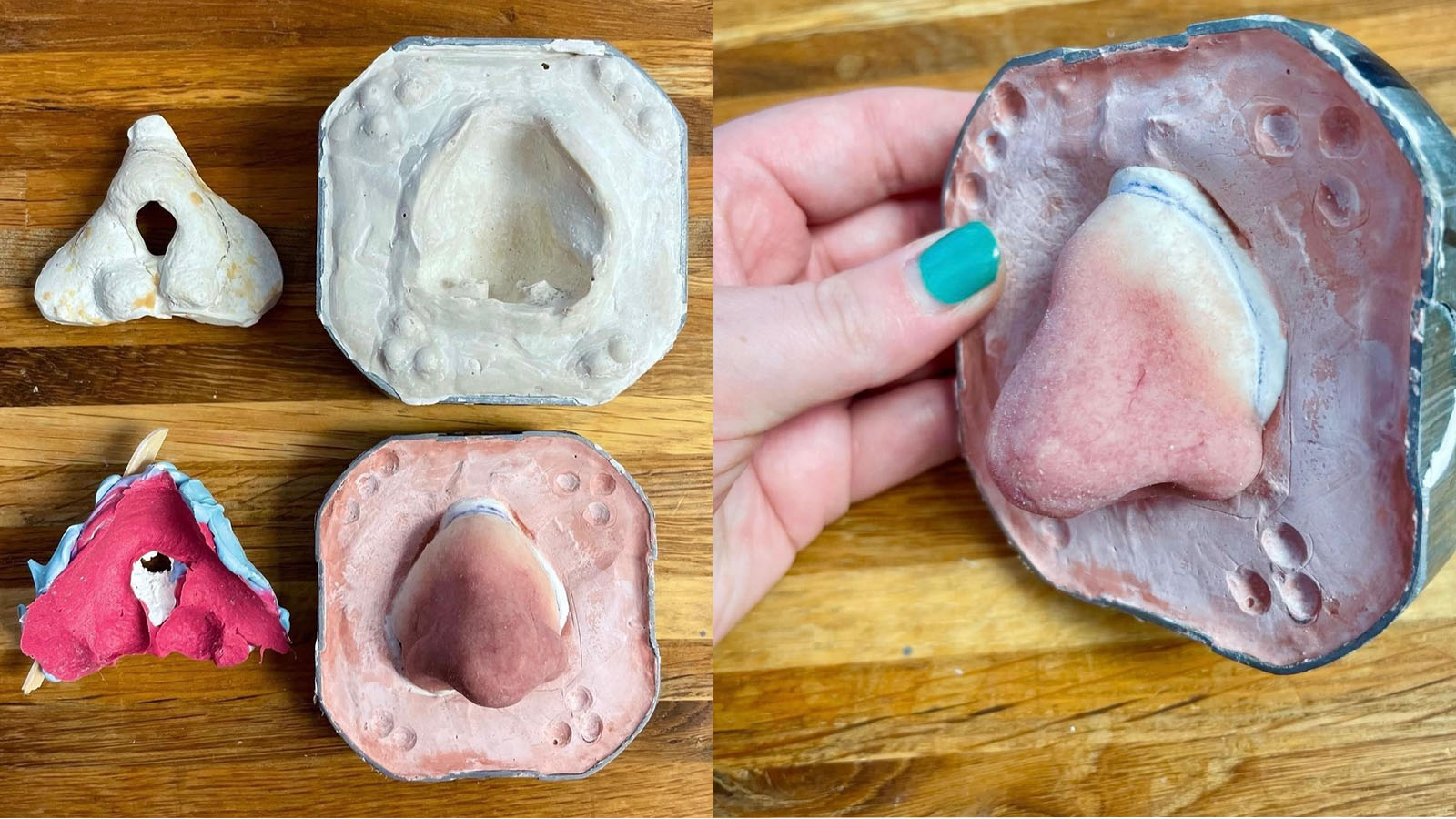Alumni Spotlight: Ashley Feild (BSEd '21)

Health Science Studies alumna Ashley Feild is using her creative and scientific skills to help serve patients at Mosaic Prosthetics in Dallas, where she works as an anaplastology apprentice. Anaplastology is the field dedicated to creating realistic, non-weight bearing prostheses for people who have lost body parts like fingers, toes, and eyes. In her apprenticeship Ashley is working toward certification as an anaplastologist and using social media to bring awareness to the field.
Ashley first discovered anaplastology because it combined her scientific mind with her artistic interests. “You have to be really aware of anatomy and how things grow and change because you have to fit your design around what is existing,” she says.
During her time at Baylor, she paired her Health Science Studies major with minors in Biology and Studio Art, working closely with Tricia Blalock, PhD, Clinical Associate Professor and Director of Health Science Studies in the Department of Health, Human Performance, and Recreation, to prepare for her career. She took courses in 2D design to work with color theory, value, and “all the little nuances in color” in addition to a number of ceramics and sculpture classes. She was then able to marry together this Studio Art coursework with what she was learning in Biochemistry and Human Physiology.
The apprenticeship experience has confirmed that anaplastology is an exceptional way for Ashley to, as she says, “use my skills and talents to change someone’s life.” Customized for each person, the work varies endlessly and allows her to “get messy,” with activities including consultations, color and sculpt appointments, and lab days for mixing silicone and sculpting prosthetics with wax.
In the future, she hopes that people will become more aware of the necessity of anaplastology. Despite the transformative role it plays in patients’ lives, Ashley says, “People don’t really know we exist. We’re not super acknowledged by insurance companies. A lot of us, unless we’re in a huge hospital, are not in network with insurance companies and can’t get in network.”
She gives the example of a prosthetic nose, explaining that your face is more than part of your identity. If you do not have a nose, you can’t hold up glasses or wear eye protection, and if you need to wear a mask, it will ride up into your eyes. A lack of nose also creates an opening for bacteria to enter into and disrupts normal breathing pathways.
“It’s not a vanity thing,” Ashley says.
Mosaic is creating exposure for the field in several different ways. Last year, they were featured in the TLC docuseries “Body Parts,” and in the next few weeks, they will host a fundraiser, the Worthwhile Mile for the Walter Spohn Trust for anaplastology research. Through her social media work, Ashley helps reach potential patients and people who may be interested in anaplastology careers. She receives messages and comments from people who “didn’t have any hope of feeling like themselves again, and then they came across the TikTok page” or “didn’t feel like there was a field that fit them and what they wanted to do, and they found anaplastology.” With only forty-five certified anaplastologists worldwide, awareness is crucial to ensuring that the field continues expanding and helping patients.
Ultimately, Ashley loves what she does in anaplastology because it allows her to work at an intersection between her passions while seeing the impact her work has on others.
“Some people think it’s a small thing,” she says, “but to be given your identity back after something traumatic is a really big deal.”